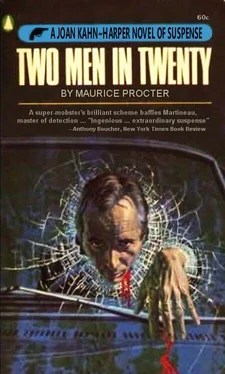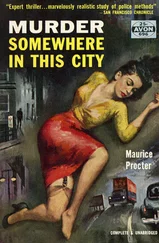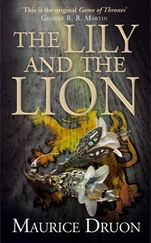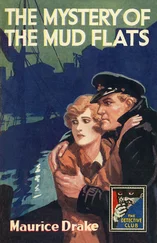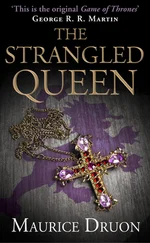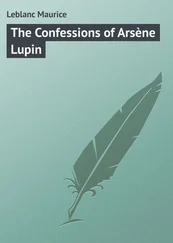Maurice Procter - Two men in twenty
Здесь есть возможность читать онлайн «Maurice Procter - Two men in twenty» весь текст электронной книги совершенно бесплатно (целиком полную версию без сокращений). В некоторых случаях можно слушать аудио, скачать через торрент в формате fb2 и присутствует краткое содержание. Год выпуска: 1963, Издательство: London : Hutchinson, Жанр: Полицейский детектив, на английском языке. Описание произведения, (предисловие) а так же отзывы посетителей доступны на портале библиотеки ЛибКат.
- Название:Two men in twenty
- Автор:
- Издательство:London : Hutchinson
- Жанр:
- Год:1963
- ISBN:нет данных
- Рейтинг книги:4 / 5. Голосов: 1
-
Избранное:Добавить в избранное
- Отзывы:
-
Ваша оценка:
- 80
- 1
- 2
- 3
- 4
- 5
Two men in twenty: краткое содержание, описание и аннотация
Предлагаем к чтению аннотацию, описание, краткое содержание или предисловие (зависит от того, что написал сам автор книги «Two men in twenty»). Если вы не нашли необходимую информацию о книге — напишите в комментариях, мы постараемся отыскать её.
Two men in twenty — читать онлайн бесплатно полную книгу (весь текст) целиком
Ниже представлен текст книги, разбитый по страницам. Система сохранения места последней прочитанной страницы, позволяет с удобством читать онлайн бесплатно книгу «Two men in twenty», без необходимости каждый раз заново искать на чём Вы остановились. Поставьте закладку, и сможете в любой момент перейти на страницу, на которой закончили чтение.
Интервал:
Закладка:
'A copper, no doubt,' he decided. He went and looked around the garage, and found some oil-stained boiler suits hanging from a row of hooks. He selected the one which fitted him best. He put it on, wearing it over his trousers and under his coat. Also on the hooks were three drivers' caps. He selected one of those and put it on his head. Now, he thought, he had the best disguise he could have for that part of the day, the appearance of a man on his way to work. He found the toilets and washed his hands and face, because men did not go dirty to work though they were not always shaven. He replaced the cap and put on the clear spectacles which were part of his working equipment. There was a mirror above one of the wash basins. He looked at himself. A very ordinary fellow, he thought. A man you would not look at twice.
He went to the door by which he had entered, and stood listening a moment. He opened the door an inch, and breathed the morning air. He looked out. Across the yard a man was unlocking a big gate in the railings. He opened the gate and fastened it back. Then he hurried off beside the railings, no doubt making for the next gate.
'Watchman or timekeeper,' France decided. 'He's late with his morning jobs.'
He opened the door wider, and looked along the street. It was still only twenty minutes past six, and there was no one about. But there was that man smoking in a doorway. There were no road blocks, but there would be patrols all round the area. France went to look at the available vehicles. He did not want one of the big lorries.
He found a small runabout van, with an inscription on the side announcing somebody's pistons. So that was what they made at this place. A big factory like this making nothing but pistons? A strange thing, commerce.
There was just enough room to drive the van to one of the big doors. He started the engine and left it running while he unbolted the door and opened it wide enough. He ran back to the van and drove out of the garage and out through the gate. He turned right, and right again, going towards the doorway where he had seen the cloud of smoke. Before he reached the crossroads he put his cap on the seat beside him, and placed his spectacles inside it. He did not slow up at the crossing, but shot across and then increased his speed. He was going fast when he passed the doorway, driving with one hand while the other held his handkerchief to his nose. He did not look at the man in the doorway, but looked at his near-side wing mirror when he had passed. The man came out of the doorway and stared after the van. He seemed to turn his head and shout to someone across the street. Two of them, then. They would know the district, and perhaps they would think that it was early for that van to be out, with the driver pretending to blow his nose when he passed a plainclothes patrol.
If those plainclothesmen were suspicious, they would put out the word first and make their inquiries afterwards. How long before the Z cars began to converge, looking for one particular van? Five minutes? Four minutes perhaps. Fortunately for France, he was not far from the heart of the city. He wanted to reach the bus station in Somerset Square.
He came to a main road. There was traffic here, though it was not yet half past six. He awaited his chance and neatly tucked his vehicle into a line which was moving fast towards the town centre. He looked at his watch. He had two minutes yet. The traffic slowed a little, to twenty miles an hour, then to fifteen. He saw that he was approaching Bishopsgate. He turned left, taking a street which ran behind Lacy Street, parallel to it. He drove at twenty along there, for nearly half a mile. His time was up, but he was close to his destination.
He put on his cap and his spectacles, and turned along the first side street. He stopped the van and left it, stuffing his gloves into his pocket as he walked away. He crossed the road and took a narrow street which cut through to Lacy Street. He was not alone now. Ahead of him were trudging male figures, early workers heading for the bus station. The more the merrier, he thought.
Men were buying their morning papers from a newsboy at the corner of Somerset Square. France bought a paper. He walked across to the Churlham bus terminus and joined a little queue there. He opened his paper, and received one of the greatest shocks of his life. There was his own face looking at him from the front page. It was a photograph which had been taken a few years ago at the beginning of a two-year stretch in prison. The picture of Cain was beside his: full length, full face, and profile. He moved slightly, so that the man beside him in the queue would have to turn to see his face.
A Churlham bus came, and he was thankful when his turn came to board it. He went to the upper deck, and right along to the front, so that people entering or leaving the bus would not see his face. He did not read his paper but put his elbow on the narrow window ledge and leaned his face on his hand so that he would not be recognized by people looking up at the bus. He felt sick. The position was completely changed, and ten times more dangerous.
The conductor came. France proffered a shilling and said 'Churlham'. He received eightpence change, and not so much as a glance from the conductor. The bus went dawdling on, or at least it seemed to France that it was dawdling. His journey was urgent now. He had to get to the filling station where he had left his car, and he had to get there before anybody arrived to open it. The proprietor and the garage hands knew him, but he was moderately certain that they had never bothered to memorize the number of his car. But any one of them would certainly do that, after he had seen a paper. France had to get there first, and get that Morris 1000 away.
The bus passed Naylor Street. Everything seemed to be normal, with no obvious policemen in sight. That did not deceive France. He kept his face partly covered.
He alighted and walked to the filling station. There was no one about. He walked round to the back and got into his car. It started without trouble. He drove back along Churlham Road to a workmen's eating house which he had seen. He took a seat in the furthest corner facing the door, and ordered tea and bacon sandwiches. He did not remove his cap. He read the paper as he ate, and learned that some of his accomplices had been arrested. Cain was still at large, and apparently he still had the loot. Well, well. He had to admit it. Cain was quite a man when the talking was over and the time for action had come.
* * * * *
Herbert Abrahams was the name of the plasterer who had allowed Howie Cain to leave a car in his yard. Mr. Abrahams had a habit of getting up early in a morning, because he liked to eat a good breakfast in comfort and look at the paper before he went to work. On the morning after the robbery at Haddon and Walker's he opened the morning paper as usual when the bacon and eggs were put before him. Clear in the middle of the front page were the pictures of two men, and one of them he recognized immediately. He began to read about the men, and he was so engrossed that his wife remarked that if he wanted a cold breakfast every morning she would see that he got it.
He began to eat, and with his mouth full he said: 'Alice, there's a feller here wanted by the police, an' I know him.'
'Who is it?'
'It's that feller what leaves his car in my yard. Remember I told yer?'
'Yer too trustin' wi' strangers. I've told yer before.'
Abrahams began to eat quickly. 'I'd better get down to t'yard an' see if his car is still there. There might be a reward for this feller.'
Alice grew red in the face. 'Yer not goin' down ter no yard where there's a robber,' she said with vehemence. She pointed. 'There's telephone. Finish yer breakfuss, an' then ring police an' tell 'em.'
Читать дальшеИнтервал:
Закладка:
Похожие книги на «Two men in twenty»
Представляем Вашему вниманию похожие книги на «Two men in twenty» списком для выбора. Мы отобрали схожую по названию и смыслу литературу в надежде предоставить читателям больше вариантов отыскать новые, интересные, ещё непрочитанные произведения.
Обсуждение, отзывы о книге «Two men in twenty» и просто собственные мнения читателей. Оставьте ваши комментарии, напишите, что Вы думаете о произведении, его смысле или главных героях. Укажите что конкретно понравилось, а что нет, и почему Вы так считаете.
